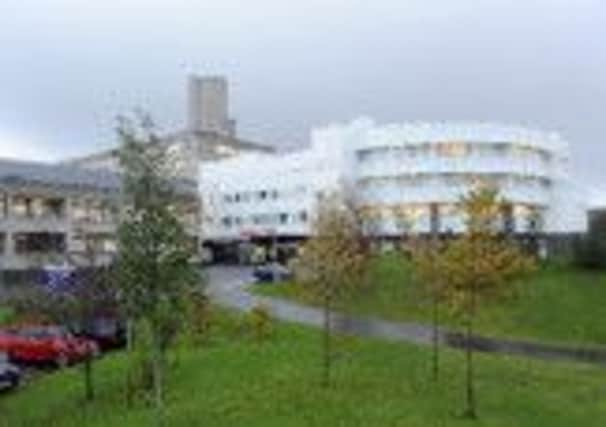Ninewells hospital babies ward declared unclean


An inspection of Ninewells Hospital in Dundee found staff were not following guidelines for cleaning in its neonatal ward.
The inspectors also found dirty patient equipment, including “blood and faecal contamination”, in other areas of the hospital.
Advertisement
Hide AdAdvertisement
Hide AdThe Healthcare Environment Inspectorate (HEI) found the standard of cleaning varied across all the wards at Ninewells, with “significant levels of dust” found on two bed frames in intensive care, high surfaces in other wards and ledges on the special care baby unit of the neonatal ward.
Guidelines state that neonatal intensive care beds are classified as “very high risk areas” and require daily cleaning of high level areas, such as ledges, while high dependency beds need weekly cleaning.
The report said: “The neonatal unit at Ninewells Hospital comprises of intensive care, high dependency and special care which means they require different cleaning frequencies for different parts of the unit.
“We spoke with a member of domestic staff to discuss the cleaning frequency in the neonatal unit.
“We were told that high level areas are cleaned on a weekly basis. The frequency detailed in the cleaning schedules does not meet the national requirements for cleaning of the neonatal intensive care unit.”
The hospital was also told to make improvements to the way breast milk was stored after concerns were raised about the temperature of fridges used for storage.
Inspectors identified dirty equipment in several parts of the hospital, including blood contamination on blood gas analysers.
Seven out of 21 pieces of toileting equipment, such as commodes, were found to have “faecal contamination”.
Advertisement
Hide AdAdvertisement
Hide AdAround the hospital the report found “poor compliance” with the way staff disposed of objects such as used needles - so-called “sharps” - which can be dangerous if someone is pierced by accident.
The inspection found overfilled bins or disposal units not being properly used. In four cases, including on the neonatal ward, blood was found on the outside of the bins.
Inspectors also observed some medical staff not following guidelines on hand hygiene.
On the neonatal ward, staff also said they were unable to say if a washing machine used to wash baby blankets and clothes maintained a high enough temperature to ensure effective disinfection.
Inspectors found that staff were not always following guidelines on uniform, including six staff wearing theatre clothing in the main concourse of the hospital, one doctor wearing a watch while treating a patient in intensive care and two doctors with long sleeves, which increases the risk of infections spreading.
Susan Brimelow, HEI Chief Inspector, said: “This inspection has identified several priority areas where NHS Tayside must make improvements within one month. These include staff adherence with dress code policies, the cleaning of patient equipment, breast milk storage arrangements and the cleaning frequency of the neonatal unit.
“However, staff demonstrated a good understanding of the process to follow when a patient with known or suspected infection was on their ward and patients commented positively on the standard of cleanliness on their wards.
The inspectors issued nine requirements which they said NHS Tayside has to address “as a matter of priority”.
NHS Tayside chief executive Le
Advertisement
Hide AdAdvertisement
Hide Adsley McLay said: “We have already addressed the majority of the requirements which have been identified by HEI.
“The remainder of the issues raised are being actively progressed through our robust action plan which clearly demonstrates our commitment to further improving our services.
“Our frontline staff work hard every day to ensure person-centred, safe and effective care for all our patients and their families. Clearly, some of the observations noted by the inspectors on the day are disappointing and therefore we are reinforcing policies with staff and providing additional training where necessary.
“We know it is essential that we keep striving to improve on what we do every day to ensure we get that care right for every patient every single time.”